BAGHDAD - Twenty Soldiers gazed expectantly at the test administrator standing in the middle of the room, waiting for the signal to begin. "You may begin," said Sgt. 1st Class Valroy Williams as he pressed the button to start the timer. Williams, the operations noncommissioned officer for Company A, Division Special Troops Battalion, 1st Cavalry Division, is the program manager and primary English instructor for the Camp Liberty DSTB GT (General Technical) Improvement Class. At his signal, heads lowered and pens began scribbling out math problems here, July 16.
GT improvement classes enable Soldiers to score higher on the Armed Forces Classification Test (AFCT). Armed Forces Classification Testing re-evaluates military personnel striving to earn a higher GT score to meet the requirements for re-enlistment, a military occupational specialty change, warrant officer training, Officer Candidate School or Reserve Officers' Training Corps. After three weeks of intense reviews, quizzes, homework and late nights, the Soldiers here are taking their final assessment test.
"This is my tenth class," said Williams, who is from Trinidad, West Indies and is attached to Co. A from his parent unit, the 18th Fires Brigade. "We wanted to make this class convenient for students because it was only held at Camp Victory."
The course is split into a math and English section. Students review and work on math problems five nights a week as the math portion of the AFCT carrying greater weight. Students hone their paragraph comprehension skills and word knowledge four nights a week.
"You have 11 minutes to complete this quiz," said Master Sgt. Mario Dovalina, as students moved on to the word knowledge portion of the test. Dovalina, who is from Dallas, is the operations security manager for the 1st Cavalry Division and volunteers as a math tutor for the program. There are twenty tutors on hand that can help Soldiers with math and English when needed.
The course is challenging in a deployed environment. Students must manage their daily duties, attend class at night and find time to complete the homework assignments for all three sections and study.
"You have to put a lot of time into it," said Sgt. Michelle Perez, an automated logistics specialist with the 299th Brigade Support Bn., 2nd Bde., 1st Inf. Div. "I've learned a lot and I'm doing this because I want to become a warrant officer in the logistics field," said the San Juan, Puerto Rico native.
Not all Soldiers are in the class to change their MOS or become an officer. One Soldier enrolled in the class simply wants to improve his math and English scores. "I wanted to improve myself," said Sgt. Cory Elliott, a wheeled vehicle mechanic with Headquarters Service Company, DSTB, 1st Cav. Div., who is from Dekalb, Ill. "I've worked on everything from an MRAP (Mine-Resistant Ambush-Protected vehicle) down and I like it so I don't want to change."
Most students in the GT improvement class increase their scores by 20 percent with an average AFCT improvement of 12 points. The goal is to attain a score of 110. A score of 110 on the GT composite would ensure that a Soldier would meet the GT standards for OCS, Warrant Officer Candidate School and many other military programs.
Spc. Andrew Lemons, an imagery analyst with B Co., DSTB, 1st Cav. Div., has his dream in sight. "I've always wanted to fly," said the Houston native. "I'm going to take this test and raise my score so I can fly AH-64 Apache helicopters."
"I've learned quite a bit running this class," said Williams, who will redeploy next month. "I've been able to meet a lot of Soldiers who have come from a variety of challenges, joined the military, and really started on the path to make dramatic changes in their lives and the lives of their families."
Williams also explained that the dedication needed for the course pays off.
"I've seen immediate results with students who put in warrant officer packets and officer packets within weeks, some who have received special assignments and others who have changed their MOS within days after achieving a GT score of 110 or higher," he said.
The timer beeped, signaling the end of the last portion of the test. "Stop, please put down your pens and pass your answer sheets and test packets to the front," said Williams. Twenty Soldiers exhibited several forms of relief: stretching, rubbing eyes, nodding, and an occasional smile before shuffling out of the classroom.
The classes are ongoing. Soldiers wishing to learn more about the GT Improvement course can contact their first sergeant or visit the Camp Victory Education Center.
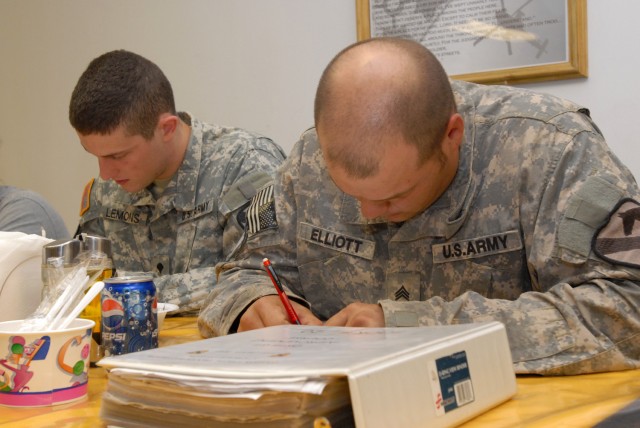
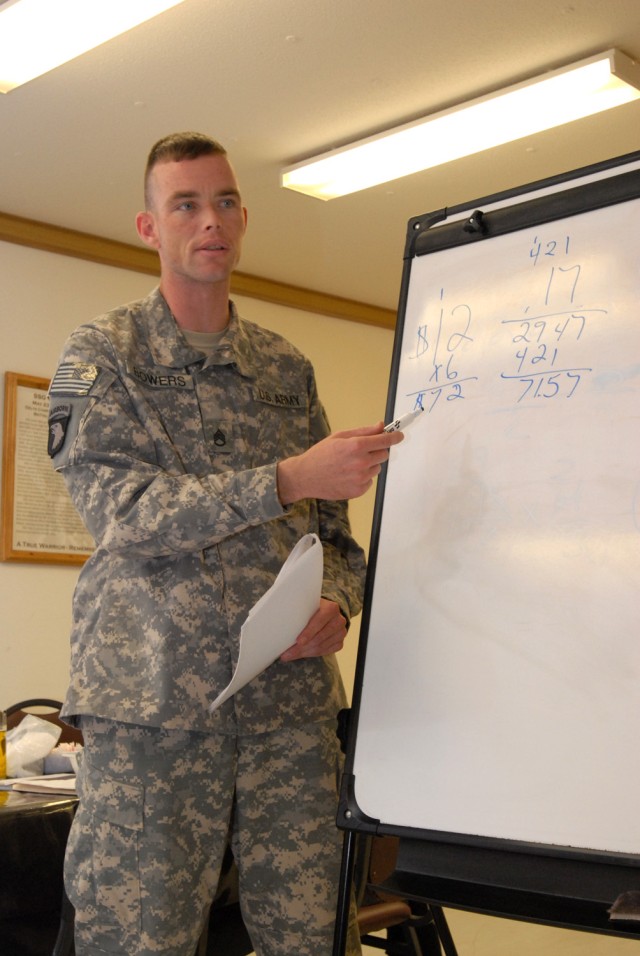
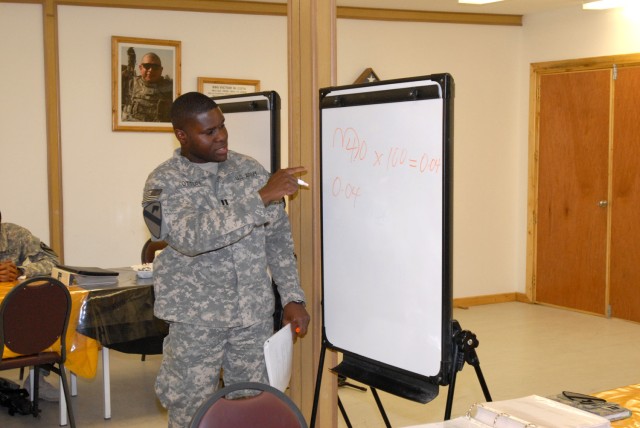
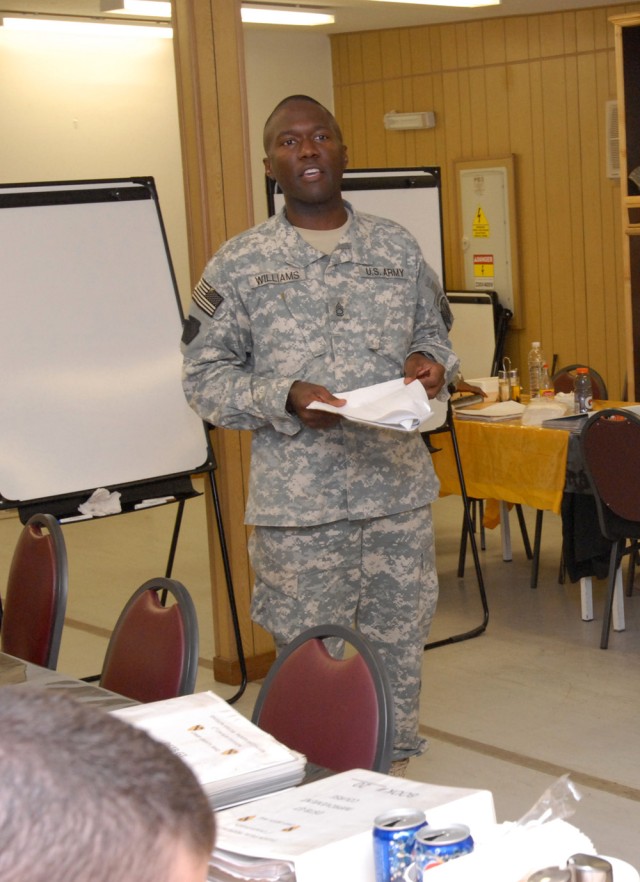
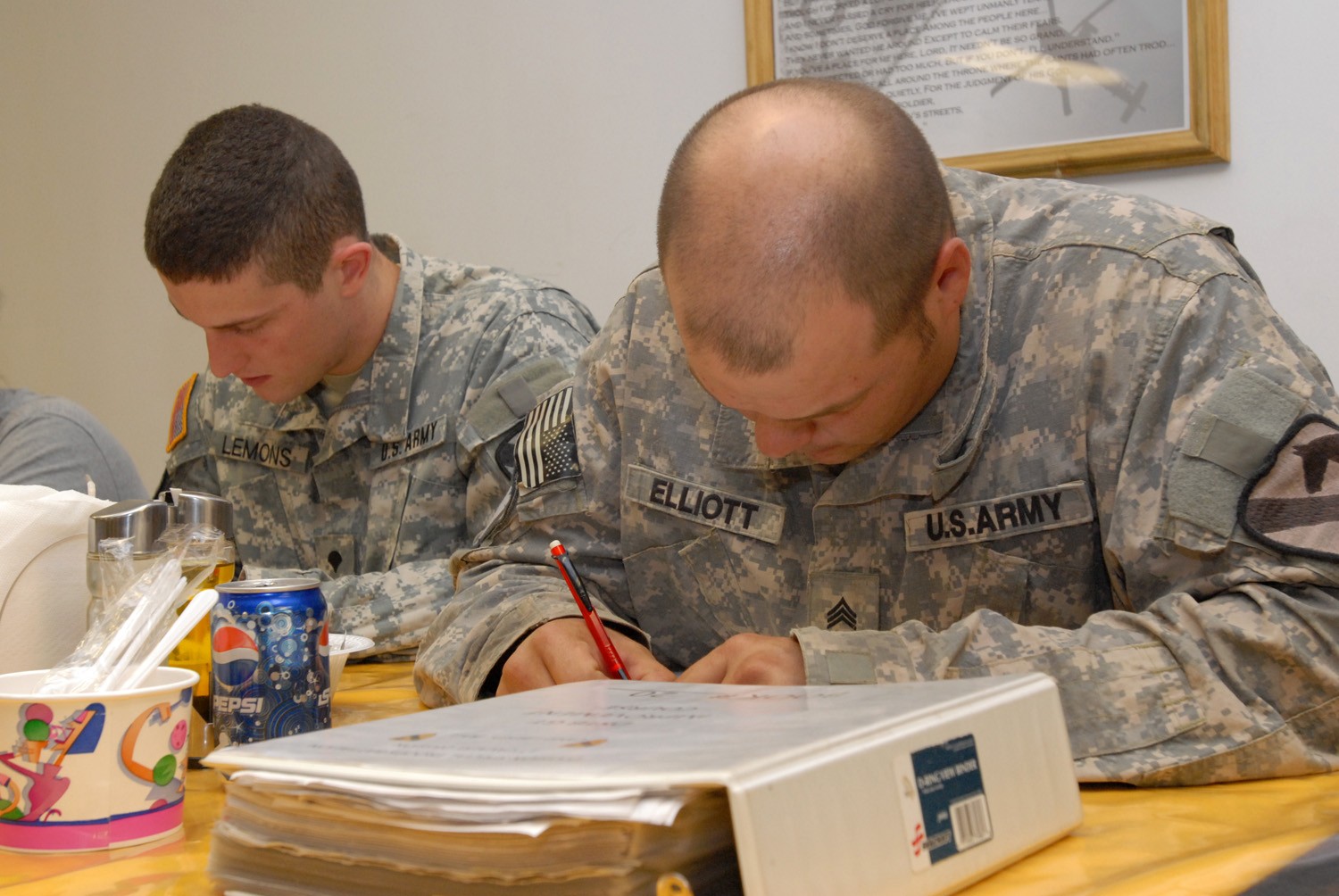
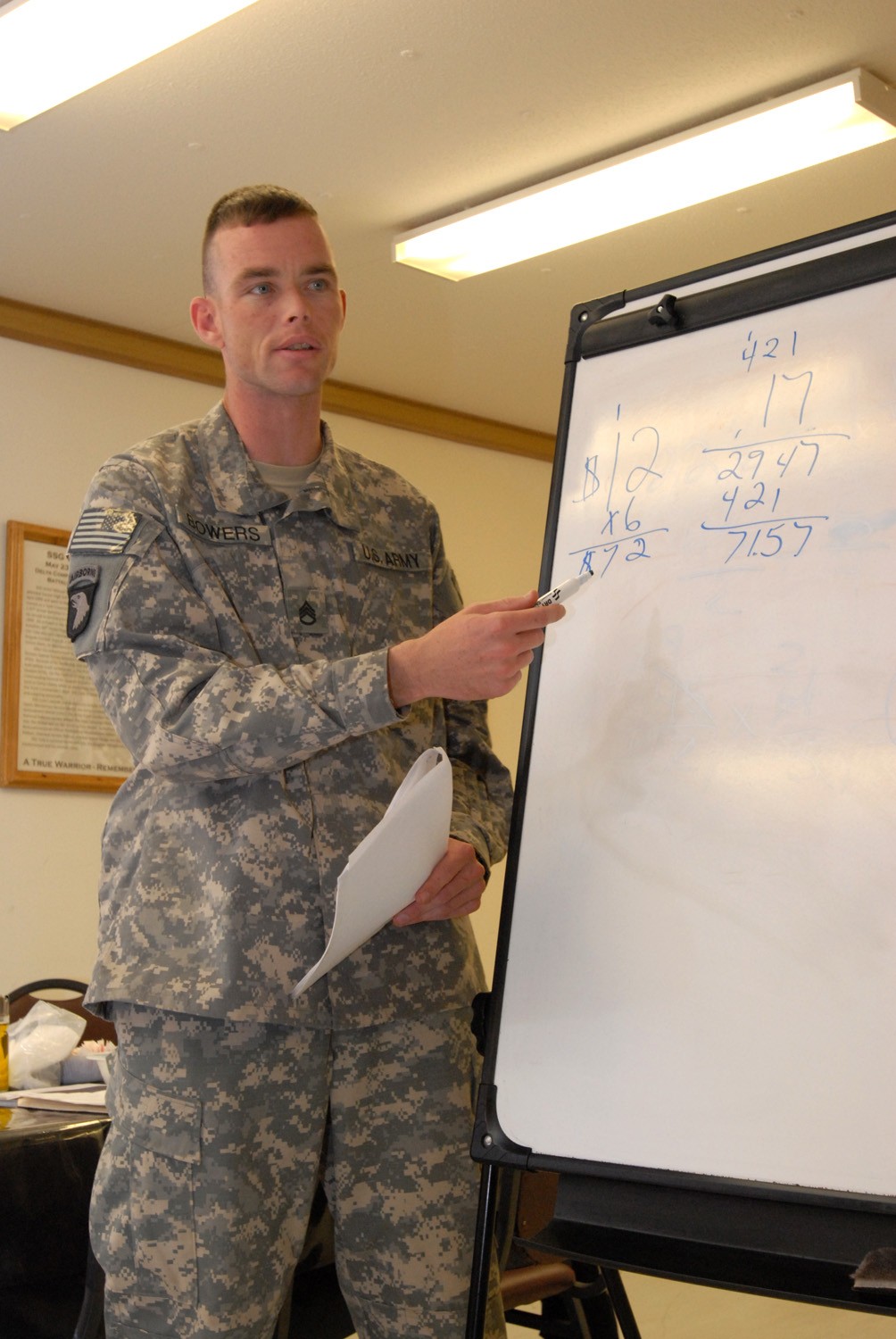
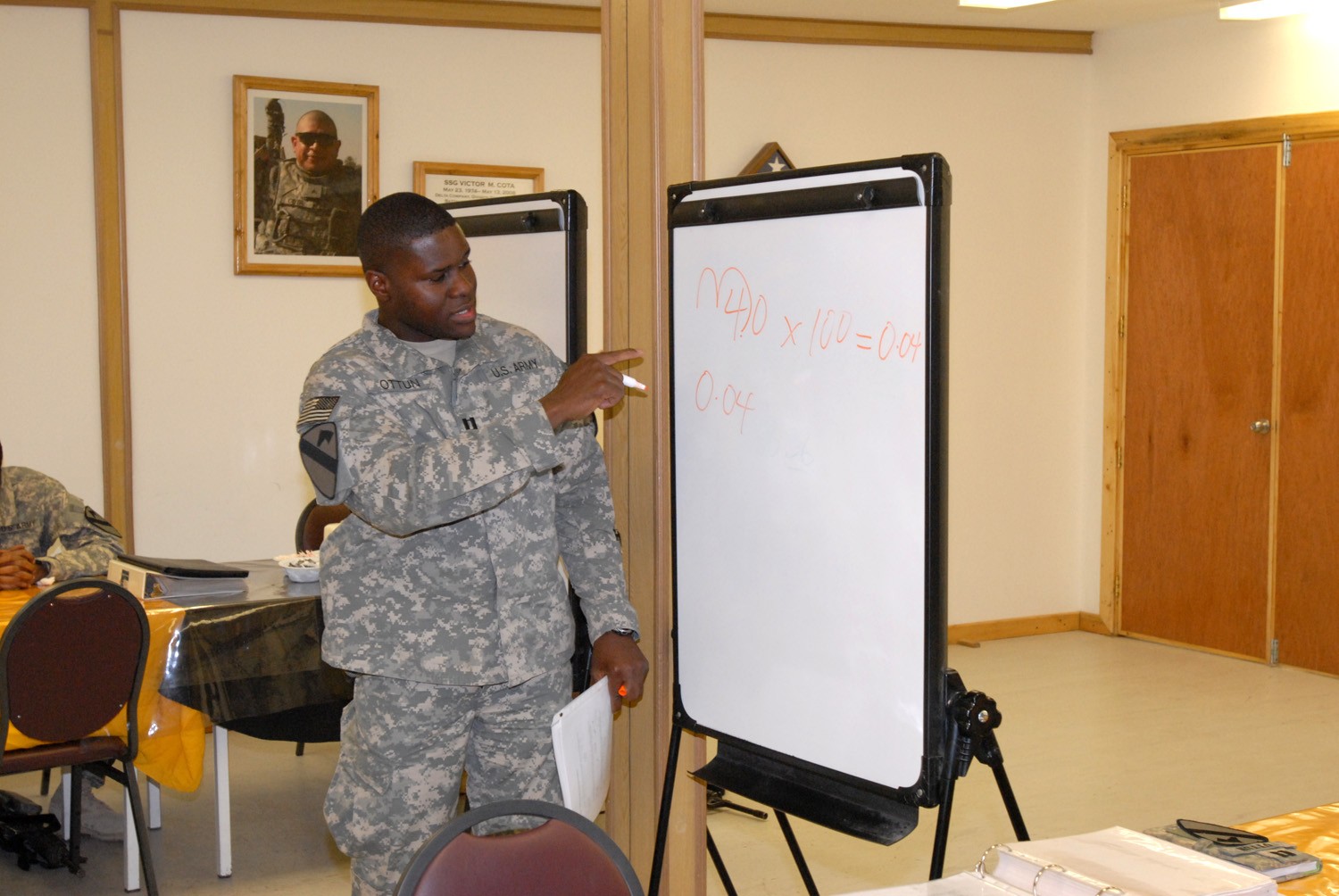
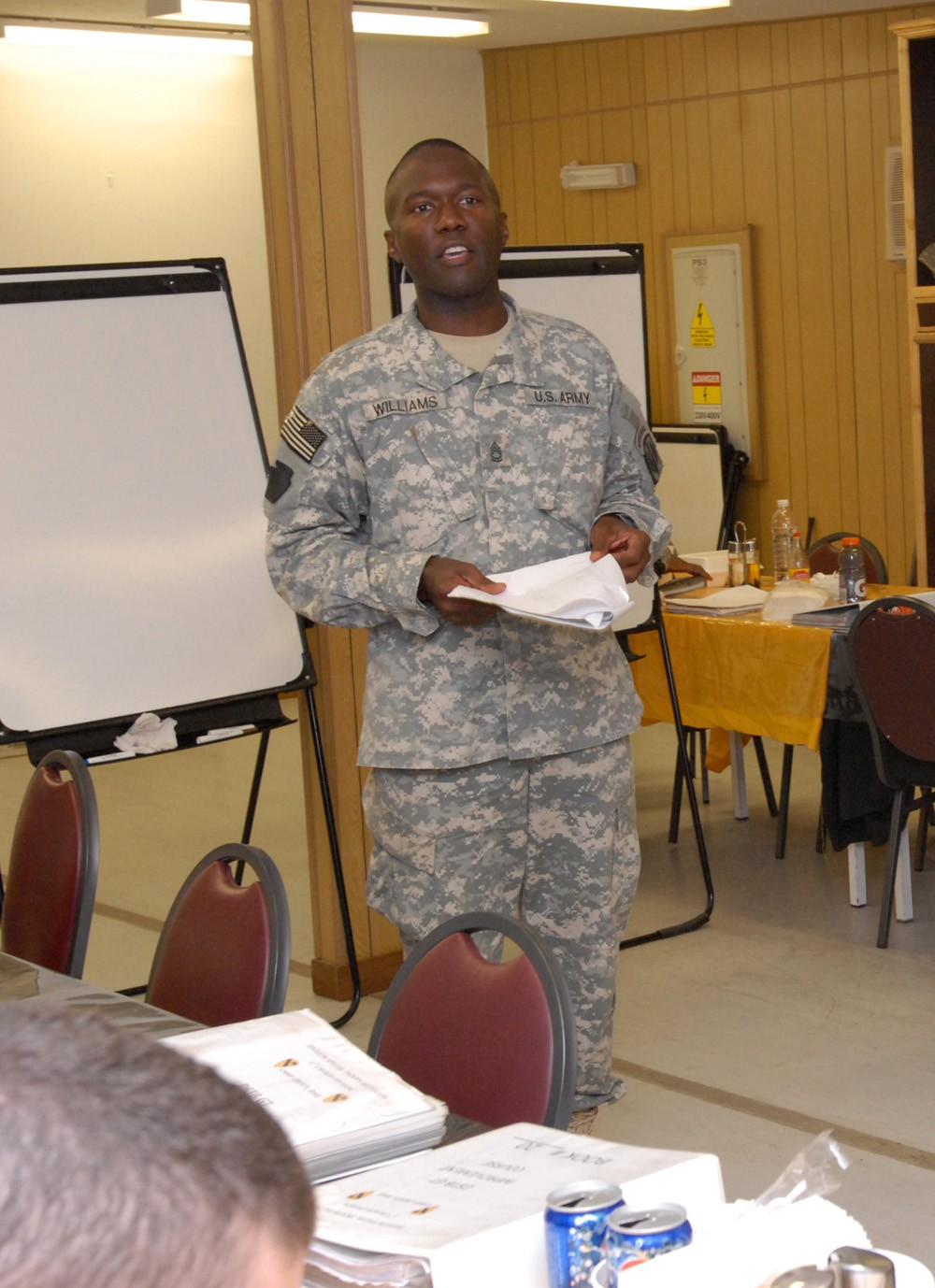
Social Sharing